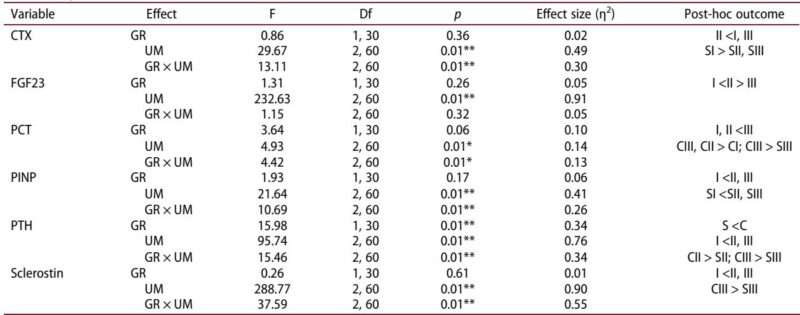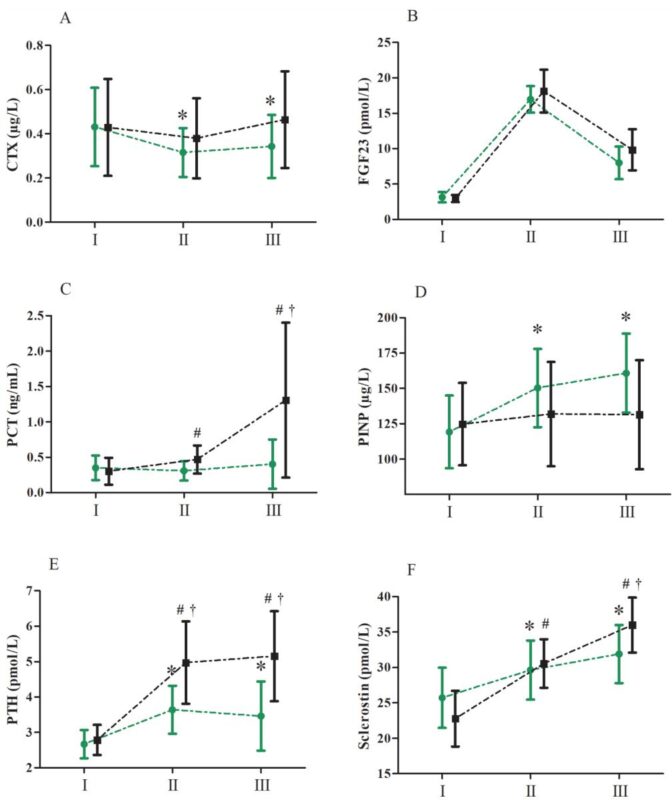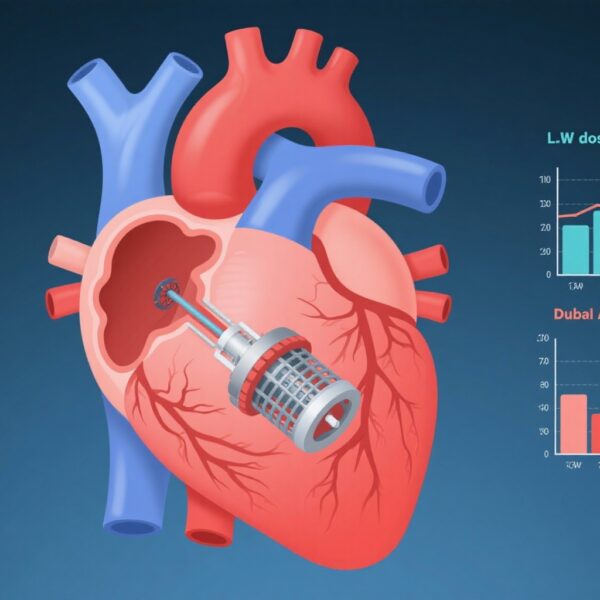Introduction
Prolonged physical activity such as ultramarathon running exerts profound effects on multiple tissue systems, including skeletal tissue. Bone remodeling, comprising dynamic balance between bone formation and resorption, is highly responsive to mechanical and biochemical stimuli triggered during intense endurance efforts. Key bone turnover markers such as N-terminal propeptide of type I collagen (PINP) for formation and C-terminal telopeptide of type I collagen (CTX) for resorption provide valuable insight into skeletal adaptations.
Vitamin D is a critical regulator of bone metabolism primarily through calcium homeostasis and parathyroid hormone (PTH) modulation. Despite this, vitamin D deficiency prevails in many athletes and may exacerbate bone turnover dysregulation induced by strenuous exercise. Recent evidence suggests that vitamin D supplementation can attenuate inflammation and tissue damage post-exertion, yet its specific impact on bone turnover after sustained ultramarathon running remains underexplored.
This study evaluates the influence of a single high dose of vitamin D3 on serum bone turnover markers in male ultramarathon runners, hypothesizing a modulatory effect that enhances bone formation and dampens resorption following extreme physical exertion.
Study Design and Methods
This double-blind randomized controlled trial (ClinicalTrials.gov NCT03417700) enrolled 35 semiprofessional male ultramarathon runners participating in the Lower Silesian Mountain Run Festival 2018, a 240 km mountain ultramarathon.
Participants were randomized into two groups: the supplemented group (n=16) receiving a single oral dose of 150,000 IU vitamin D3 (cholecalciferol) in vegetable oil 24 hours before the race, and the placebo group (n=19) receiving a matching placebo solution.
Venous blood samples were collected at three critical timepoints: 24 hours pre-race (baseline), immediately post-race, and 24 hours post-race. Serum concentrations of 25-hydroxyvitamin D3 [25(OH)D3], PINP, CTX, PTH, sclerostin, fibroblast growth factor 23 (FGF23), and procalcitonin (PCT) were measured using established immunoassays.
Statistical analyses involved two-way repeated measures ANOVA assessing group (supplemented vs control) by time (before, immediately after, 24h after race) interactions, with post-hoc testing when appropriate. Correlation coefficients between vitamin D levels and bone markers were calculated to elucidate the relationships.
Key Findings
Vitamin D status, as measured by serum 25(OH)D3, significantly increased in both groups post-race, with a markedly greater elevation in the supplemented group (up to 147.01% increase 24 hours post-race versus 84.71% in controls).

Bone formation marker PINP rose immediately after the race, with a significantly higher increase observed among vitamin D supplemented runners compared to controls, implying enhanced osteoblastic activity.

Conversely, serum CTX, a marker of bone resorption, significantly decreased immediately and 24 hours after the race in the supplemented group but remained unchanged in controls, indicating attenuated osteoclastic resorption linked to vitamin D supplementation.
PTH and sclerostin showed notable elevation 24 hours post-race in the control group but to a lesser extent in the supplemented group, suggesting vitamin D’s regulatory role in parathyroid hormone secretion and osteocyte signaling.
Procalcitonin, an inflammation and infection marker, increased significantly after the race only in the control group, suggesting an anti-inflammatory benefit of vitamin D.
Correlational analyses demonstrated significant negative correlations between serum vitamin D and both PTH and sclerostin levels, and positive correlation with PINP, reinforcing the mechanistic link between vitamin D and bone remodeling.
Expert Commentary
This study provides pioneering evidence that a single large dose of vitamin D3 before extreme endurance exertion can beneficially modulate bone turnover markers by reducing bone resorption and enhancing formation. Considering the known calcium-PTH-vitamin D interplay, these hormonal adjustments likely mediate the skeletal protective effects.
The suppression of inflammatory marker PCT highlights an additional systemic benefit enhancing recovery.
Limitations include the lack of calcium intake and serum calcium measurements, absence of female participants, and a focus on short-term post-exercise changes. Future research incorporating calcium metabolism assessments, longitudinal evaluation, and inclusion of women is warranted to generalize findings.
Conclusion
Administration of a single high dose of vitamin D3 24 hours prior to ultramarathon running significantly elevated serum vitamin D levels and favorably altered bone turnover marker profiles. Vitamin D supplementation attenuated exercise-induced bone resorption and promoted bone formation, with concurrent suppression of PTH and inflammatory responses. These findings suggest that vitamin D may serve as an effective nutritional strategy to preserve bone health during extreme endurance exercise by modulating calcium-PTH homeostasis.
Ongoing studies should investigate calcium kinetics and explore these effects in diverse populations to optimize supplementation protocols.
References
Stankiewicz B, Kochanowicz A, Brzezińska P, Niespodziński B, Reczkowicz J, Waldziński T, Kowalik T, Piskorska E, Wędrowska E, Antosiewicz J, Mieszkowski J. Single high-dose vitamin D supplementation impacts ultramarathon-induced changes in serum levels of bone turnover markers: a double-blind randomized controlled trial. J Int Soc Sports Nutr. 2025 Dec;22(1):2561661. doi: 10.1080/15502783.2025.2561661 IF: 3.9 Q1 . Epub 2025 Sep 17. PMID: 40963202 IF: 3.9 Q1 ; PMCID: PMC12447467 IF: 3.9 Q1 .


